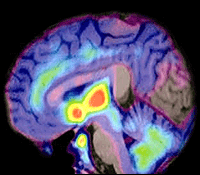Placebos Move Hearts and Minds but…
Monday, July 18th, 2011 Placebos, or rituals dressed up as medical treatments that lack any active ingredients, definitely abate symptoms in many circumstances. They can change how we think-and-feel about our illness or disease. Indeed, they are so effective at moving our hearts and minds we have explored their implications as a more general tool for organizational and individual change here on the cognitive design blog.
Placebos, or rituals dressed up as medical treatments that lack any active ingredients, definitely abate symptoms in many circumstances. They can change how we think-and-feel about our illness or disease. Indeed, they are so effective at moving our hearts and minds we have explored their implications as a more general tool for organizational and individual change here on the cognitive design blog.
But an important question remains, do they go beyond heart-and-mind impact to create the underlying physiological changes that drugs with active ingredients do? Is belief somehow altering biology? The answer appears to be no, at least within the scope of a recent clinical study of placebos reported by Beth Israel Deaconess Medical Center. They studied the physiological impacts of placebos on Asthma patients and found:
”while placebos had no effect on lung function (one of the key objective measures that physicians depend on in treating asthma patients) when it came to patient-reported outcomes, placebos were equally as effective as albuterol in helping to relieve patients’ discomfort and their self-described asthma symptoms.”
Abating symptoms and relieving discomfort is a significant psychological impact.
This is a very important finding for cognitive designers. It demonstrates that designs (in this case a placebo) that create distinct think-and-feel effects deliver significant value even if they do not produce underlying changes in physiology. Placebos as “pure play” cognitive designs create real value!